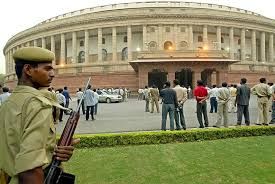 The finance ministry is considering an amendment to the Finance Bill, 2014, to sort out the issue of retrospectivity in the Budget proposal to double the rate of long-term capital gains tax on debt mutual funds -- from 10 per cent to 20 per cent.
The finance ministry is considering an amendment to the Finance Bill, 2014, to sort out the issue of retrospectivity in the Budget proposal to double the rate of long-term capital gains tax on debt mutual funds -- from 10 per cent to 20 per cent.
“We are considering requests in this regard.
These will be settled through an amendment to the Finance Bill,” Central Board of Direct Taxes Chairman R K Tewari told Business Standard.
While the finance ministry had made it clear the higher tax rate would be imposed on income arising in the 2014-15 financial year, it had assured the industry of addressing the issue of retrospectivity.
The retrospectivity issue arose because some investors might have invested or redeemed the investments before announcement of the Budget on July 10 and, if they receive income this year, they would have to shell out more because of the higher tax rate.
Revenue Secretary Shaktikanta Das had earlier said: “The effective date (of higher capital gains tax rate) is 2015-16 assessment year; that is, income accruing in 2014-15.
"But, let me clarify the intention is not to introduce any kind of retrospectivity.”
An official later said the ministry might consider grandfathering the debt mutual fund transactions made before presentation of the Budget.
Grandfathering refers to application of old rules to existing cases, while bringing future cases under a new law.
Now, the issue that arises is whether the old rate of capital gains tax, at 10 per cent, will apply to only the redemptions made before the Budget, or investments as well.
Tewari said a call in this respect was yet to be taken.
He admitted the department was receiving representations from the public that some of them had transacted in these funds before the Budget presentation and they did not know about the higher rates at that point of time.
“We are looking at these requests.
"We will see from which date the higher rate will apply,” he said, adding the decision in this regard was yet to be taken.
“Generally, whenever there is a change in tax rates, redemptions are taken into account to apply the existing rate.
"This is because redemption could be tracked, while tracking investments is very difficult,” said Neeru Ahuja, partner, Deloitte India.
The Finance Bill seeks to amend Section 2 (42A) of the Income-Tax Act to impose higher tax on debt mutual funds.
This provision might now further be amended to provide clarification.
At an industry meet earlier, finance ministry representatives were told that Finance Minister Arun Jaitley made a retrospective provision in the I-T Act despite an assurance to the contrary.
To this, the revenue secretary had replied,: “We will stand by the finance minister’s statement that no decision will be taken retrospectively.”
CONTENTIOUS ISSUE
Retail angle
The industry counters FM Arun Jaitley’s reasoning for higher tax that retail investors account for a small portion of debt mutual fund investors
Value vs volume
It says while the amount invested by these investors is small, their number has been overlooked
Regulators talk
As of March, 14, there were over 6.7 million folios from retail investors in various debt schemes, according to an Amfi letter to Sebi Chairman U K Sinha
Bringing on par
Industry says intention of the Budget seems to bring fixed maturity plans of mutual funds on par with bank fixed deposits
Word of caution
All open-ended debt funds and all non-equity schemes like gold and fund of funds will come under the ambit of higher tax rate, the industry cautions











